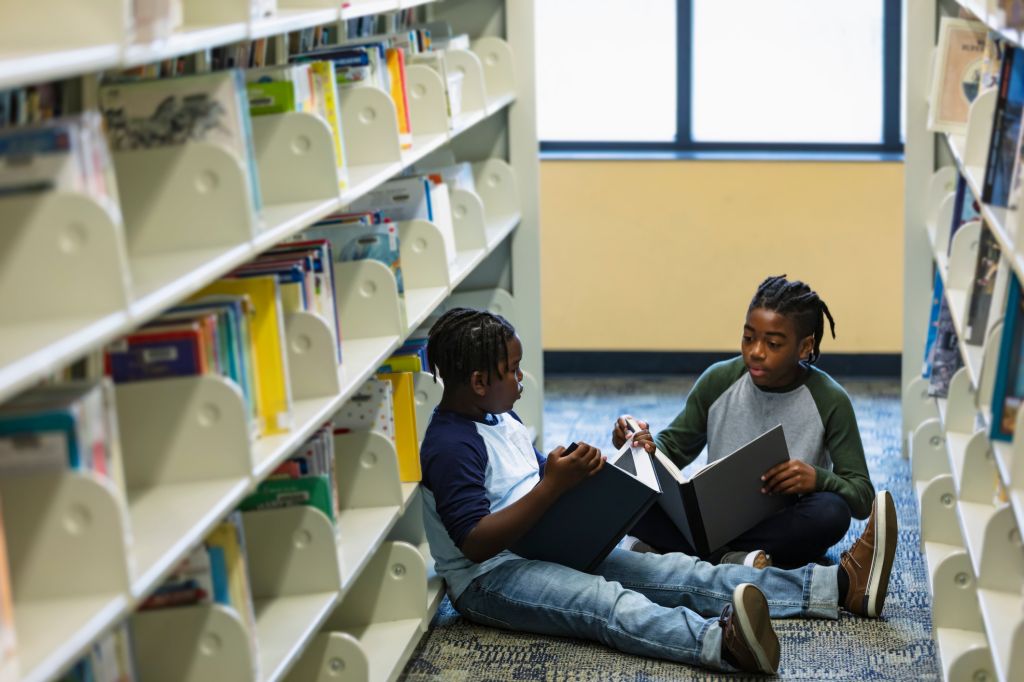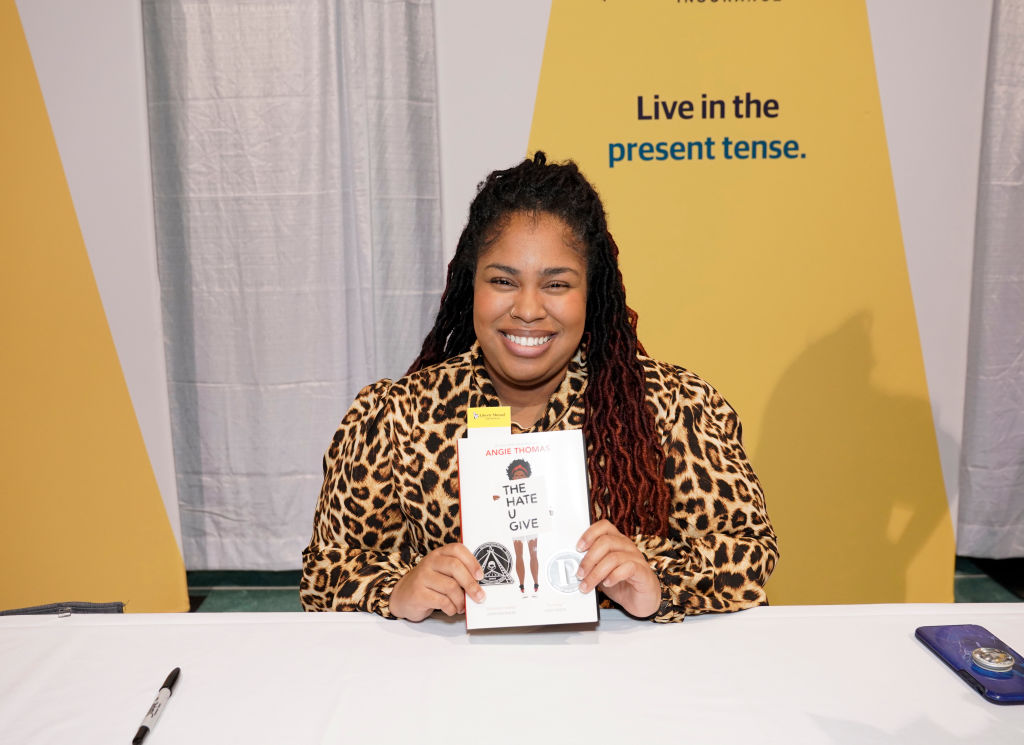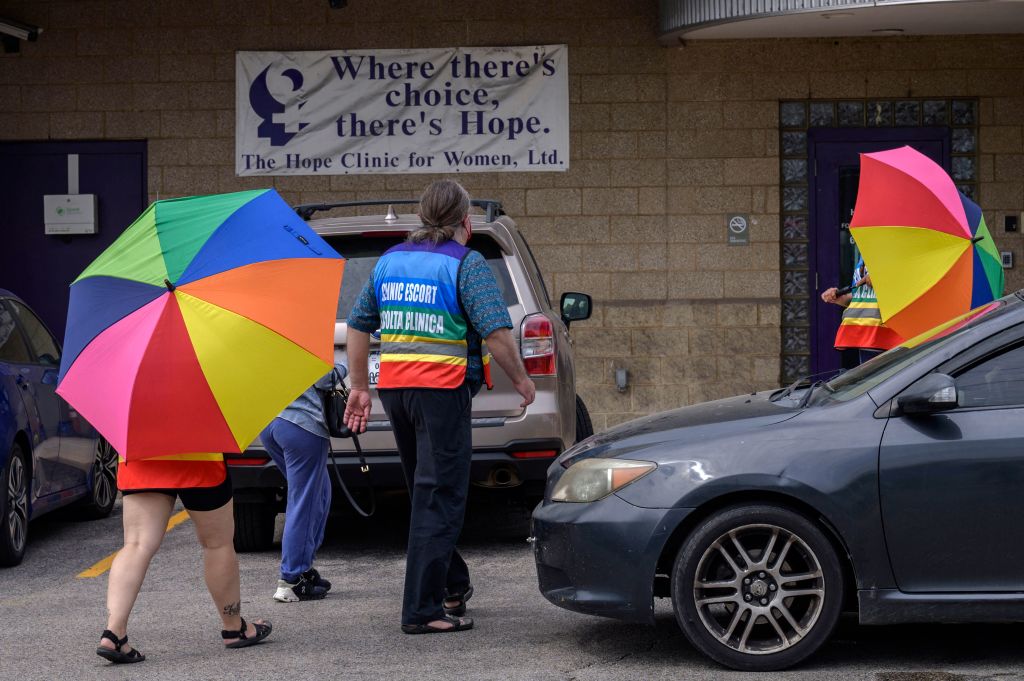
Source: Kali9 / Getty
UPDATED: 8:00 a.m. Feb. 3, 2025:
This year’s observation of Black History Month is coming at a time when there is an increasing number of books being banned, with a good portion of those books being about Black history.
One place in particular where those books are being banned is in schools, robbing students of the opportunity to accurately learn about the historical series of events that have helped shape the Black experience not just in the U.S. but across the world and especially in Africa.
The classroom is a space where students should have the opportunity to learn about everything—the good and the ugly as well as the other more challenging parts of history. Yet, there is a growing trend of attempting to erase Black history.
In recent years, this disconcerting trend has become particularly noticeable in some Republican-led states. It’s even gotten to the point where the NAACP just last year sued a South Carolina school district for removing a book about racism from every school in the district. The lawsuit claimed the book removal was politically and racially motivated censorship that cannot be tolerated under the First Amendment.
And in Florida, Gov. Ron DeSantis has defended the state’s rejection of an entire advanced placement African American history curriculum.
Similarly, Arkansas abruptly eliminated all AP African American studies courses via the Arkansas LEARNS Act which forbids discussions on various subjects in educational settings, including critical race theory.
From banning books to prohibiting entire African American curricula as a whole, the decisions and attempts to ban Black history are truly bizarre.
That’s why it’s incumbent upon individuals to be vigilant and take it upon themselves to stay informed independent of educational instruction.
Black history helped build the foundation that is the United States as we know it today. In an era where information is readily available, the deliberate suppression of historical narratives is a cause for concern. Efforts to ban certain books from schools and libraries not only hinder educational growth but also perpetuate the cycle of ignorance. These bans have struck at the core of works that explore Black history, culture and the ongoing struggle for justice.
Contrary to false narratives, teaching Black history is not meant to shame other races. However, that has somehow become the prevailing argument trumpeted by those implicitly and explicitly upholding white supremacy.
Books have historically emerged as powerful tools to counter these forces that have firmly been in place for centuries.
“There is a real cost when the stories of ordinary Black children, which are already limited, are ignored by publishing houses or silenced by book bans,” Anna Opoku-Agyeman, a researcher who studies inequality in the workplace and academic settings, wrote in an opinion piece for TIME last year.
Opoku-Agyeman went on to say that “opponents of diverse storytelling are robbing the next generation of an opportunity to be unabashedly curious about the world around them. The question is at what cost?”
From ‘The Hate U Give‘ to ‘The 1619 Project: A New Origin Story,’ scroll down to keep reading to find 10 essential books as identified by NewsOne highlighting various aspects of Black history that shouldn’t just be taught in schools but also read in an effort to learn more about Black people’s contributions to the world.
1. “Chains” by Laurie Halse Anderson
“Chains” by Laurie Halse Anderson is a historical novel following Isabel, an enslaved girl, as she fights for freedom during the Revolutionary War while serving a cruel Loyalist family. The book explores her resilience and determination amidst the challenges of the era’s political turmoil.
2. “The Autobiography of Malcolm X” by Malcolm X and Alex Haley
 Source:Getty
Source:Getty
“The Autobiography of Malcolm X” is a book about Malcolm X’s life, written with the help of Alex Haley. It tells how he grew up, his involvement with civil rights, and his ideas about race and equality.
3. “Their Eyes Were Watching God” by Zora Neale Hurston
“Their Eyes Were Watching God” by Zora Neale Hurston is a novel that follows the journey of Janie Crawford, a Black woman, as she navigates her path of self-discovery and independence in the 30s.
4. “Black Boy” by Richard Wright
“Black Boy” by Richard Wright offers a detailed account of his upbringing in the South, including his experiences in Mississippi, Arkansas, and Tennessee. The book also narrates his journey to Chicago, where he builds his career as a writer and becomes associated with the Communist Party.
5. The 1619 Project: A New Origin Story by Nikole Hannah-Jones
 Source:Getty
Source:Getty
“The 1619 Project: A New Origin Story” by Nikole Hannah-Jones looks at American history starting from 1619, when enslaved Africans arrived in Virginia. The book explores how slavery shaped America, including its influence on politics, economics, and culture. Through essays and different viewpoints, it offers a fresh perspective on the country’s history.
6. “How to Be an Antiracist” by Ibram X. Kendi
‘How to Be an Antiracist‘ is a thought-provoking book that challenges readers to actively confront and dismantle racism. Kendi presents a guide to understanding and taking action against racist ideas and systems, advocating for an antiracist approach that goes beyond mere non-racism.”
7. “I Am Not Your Negro” by James Baldwin
“I Am Not Your Negro” is a book by James Baldwin that talks about how Black people were treated unfairly. It shares Baldwin’s thoughts on civil rights leaders and how racism affected America.
8. “Twelve Years a Slave” by Solomon Northup
 Source:Getty
Source:Getty
“Twelve Years a Slave” is a book by Solomon Northup about his own life. He was a free Black man who was kidnapped and sold into slavery, and the book tells about his struggles as a slave for twelve years and his eventual fight for freedom.
9. “The Hate U Give” by Angie Thomas
 Source:Getty
Source:Getty
“The Hate U Give” by Angie Thomas is a novel that follows Starr Carter, a Black teenager, after she witnesses the fatal shooting of her unarmed friend by a police officer. The book explores Starr’s journey as she navigates the aftermath of the tragedy, dealing with grief, activism, and the complexities of race and identity.
10. “Claudette Colvin: Twice Toward Justice” by Phillip Hoose
 Source:Getty
Source:Getty
“Claudette Colvin: Twice Toward Justice” is a young adult nonfiction book by Phillip Hoose. It recounts the experiences of Claudette Colvin in Montgomery, Alabama, during the Civil Rights Movement. The book sheds light on Colvin’s significant role in challenging racial segregation, providing insight into her experiences and contributions during that pivotal time.























